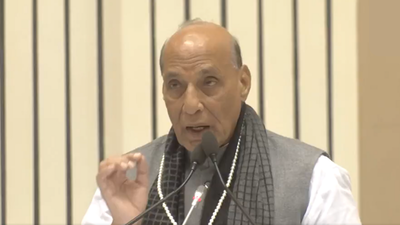The numbers stand in contrast to the quantum of reservation, which is 27%, that the OBC population gets in government jobs and admissions to educational institutions. Bihar Chief Minister Nitish Kumar is likely to use the survey data for political mileage not only in the state but also at the national level.
Today, on the auspicious occasion of Gandhi Jayanti, the data of caste based census conducted in Bihar has been published. Many congratulations to the entire team engaged in the work of caste based census!
The proposal for caste based enumeration was passed unanimously in the Legislature.…
— Nitish Kumar (@NitishKumar) October 2, 2023
The journey of the caste survey wasn’t smooth, though. Soon after its second phase began on April 15, the Patna High Court stayed the survey in May, saying the state wasn’t competent to conduct the caste survey. Around three months later, the same court termed the survey “perfectly valid”. Here is a look at why it was challenged, and why the Patna HC ultimately upheld it.
The grounds for the challenge
The caste survey was challenged under two significant grounds: that it violated a citizen’s fundamental right to privacy and that the state had no power to carry out such a survey.
Privacy argument: Petitioners opposed the survey, saying the right to privacy of those being surveyed will be infringed due to the queries concerning their religion, caste, and monthly income.
But the court referred to the triple-requirement test laid down in the 2017 ‘Justice KS Puttaswamy vs Union of India’ case, reiterating that permissible restrictions can be imposed on the fundamental right, in the state’s legitimate interests, provided they are proportional and reasonable.
Over the security concerns raised in the interim order (which had stayed the survey), the court accepted the Bihar government’s counter-affidavit, saying that the survey has a foolproof mechanism with no chance of any kind of data leakage.
Adding that the disclosures were “voluntary” and aimed at “bringing forth development schemes for the identified backward classes”, the court clarified that the data collected was not for “taxing, branding, labelling or ostracising individuals or groups” but to “identify the economic, educational and other social aspects of different communities/classes/groups, which require further action by the State” for their upliftment.
Competence: The petitioners claimed that only the Union government could conduct a “census”. The legislative, and by extension, executive, powers of the Centre and states are divided into three lists found in the Constitution’s Seventh Schedule. Among these, Entry 69 of the Union List contains the Centre’s exclusive power to conduct a “census”, the petitioners said. They also relied on Article 246, which deals with the Parliament’s power to exclusively legislate “on any of the matters enumerated in List I in the Seventh Schedule”.
Most Read
 Express graphic
Express graphic
Meanwhile, the Bihar government argued that even in 2011, a caste census was conducted by the Centre, the details of which weren’t disclosed, under Article 73, which states that the Centre’s power extends to matters on which Parliament has the power to make laws.
It also pointed out that Entry 45 of the Concurrent List, containing subjects over which both the Centre and the states can legislate, is similar to Entry 94 of the Union List, as both confer powers to collect statistics for verifying details, to achieve the economic and social planning goals listed under Entry 20 of the Concurrent List.
In its final order, the Patna HC noted: “We find the action of the State to be perfectly valid, initiated with due competence, with the legitimate aim of providing ‘Development with Justice’; as proclaimed in the address to both Houses and the actual survey to have neither exercised nor contemplated any coercion to divulge the details and having passed the test of proportionality, thus not having violated the rights of privacy of the individual especially since it is in furtherance of a ‘compelling public interest’ which in effect is the ‘legitimate State interest’”.







